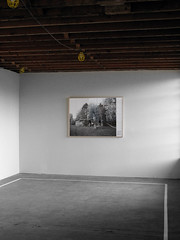3 Easy Steps to Buy a House on Long Island
When it’s time to buy a house — on Long Island, or anywhere — you should definitely start the process by doing your own research into what is on the market, what interest rates are, and what your budget is. After you do some research on your own, you should contact a broker to help you find your home and an attorney to represent you in negotiating your contract and closing the sale.
Step 1: Do your own research on the Process of Buying a Home
The U.S. Department of Housing and Urban Development provides tips that will assist you in finding your house, determining your budget and how to finance your home. Specifically, the Department of Housing and Urban Development provides tips on:
a. how to assess your ability to purchase a new home
b. how to search for a new home
c. how to obtain financing to buy your home, and
d. the many ways the federal government can help you purchase your home.
Step 2: Contact a Real Estate Broker
Once you have done your research, you know what you’re looking for, and you know what your budget is, you should contact a real estate agent to help you find your house. A real estate agent has the tools and training that will make the process of finding your home more efficient. The real estate agent will do most of the leg work for you, will advise you of open houses you should go to, and will make appointments for you to go see the houses you are interested in. Once you have found the home you like, your real estate agent will assist you in the bidding and negotiating process. Remember: the seller pays the broker fee. So, this is essentially a free service for you.
Step 3: Contact a Real Estate Attorney
Now that you found your home and have negotiated the purchase price, it’s time to contact your Real Estate Attorney. He/she will memorialize your sale agreement in a Contract and will represent you in closing the deal.
Buying your home can be one of the most exciting experiences of your lifetime. To make it as smooth of an experience as possible, I highly recommend first doing the research to figure out what you want and what you can afford, and then retaining experienced professionals i.e.: a broker and an attorney. Congratulations and good luck!
When it’s time to buy a house — on Long Island, or anywhere — you should definitely start the process by doing your own research into what is on the market, what interest rates are, and what your budget is. After you do some research on your own, you should contact a broker to help you find your home and an attorney to represent you in negotiating your contract and closing the sale.
Step 1: Do your own research on the Process of Buying a Home
The U.S. Department of Housing and Urban Development provides tips that will assist you in finding your house, determining your budget and how to finance your home. Specifically, the Department of Housing and Urban Development provides tips on:
a. how to assess your ability to purchase a new home
b. how to search for a new home
c. how to obtain financing to buy your home, and
d. the many ways the federal government can help you purchase your home.
Step 2: Contact a Real Estate Broker
Once you have done your research, you know what you’re looking for, and you know what your budget is, you should contact a real estate agent to help you find your house. A real estate agent has the tools and training that will make the process of finding your home more efficient. The real estate agent will do most of the leg work for you, will advise you of open houses you should go to, and will make appointments for you to go see the houses you are interested in. Once you have found the home you like, your real estate agent will assist you in the bidding and negotiating process. Remember: the seller pays the broker fee. So, this is essentially a free service for you.
Step 3: Contact a Real Estate Attorney
Now that you found your home and have negotiated the purchase price, it’s time to contact your Real Estate Attorney. He/she will memorialize your sale agreement in a Contract and will represent you in closing the deal.
Buying your home can be one of the most exciting experiences of your lifetime. To make it as smooth of an experience as possible, I highly recommend first doing the research to figure out what you want and what you can afford, and then retaining experienced professionals i.e.: a broker and an attorney. Congratulations and good luck!
First Time Home Buyer Programs
Peter T. Roach is a New York collection lawyer, who enforces creditors’ rights throughout the state of New York. To receive expert advice on collecting debt, visit http://www.roachlawfirm.com or call Peter T. Roach & Associates, P.C. at 1-800-824-0284.
Find More Buying A House Articles







